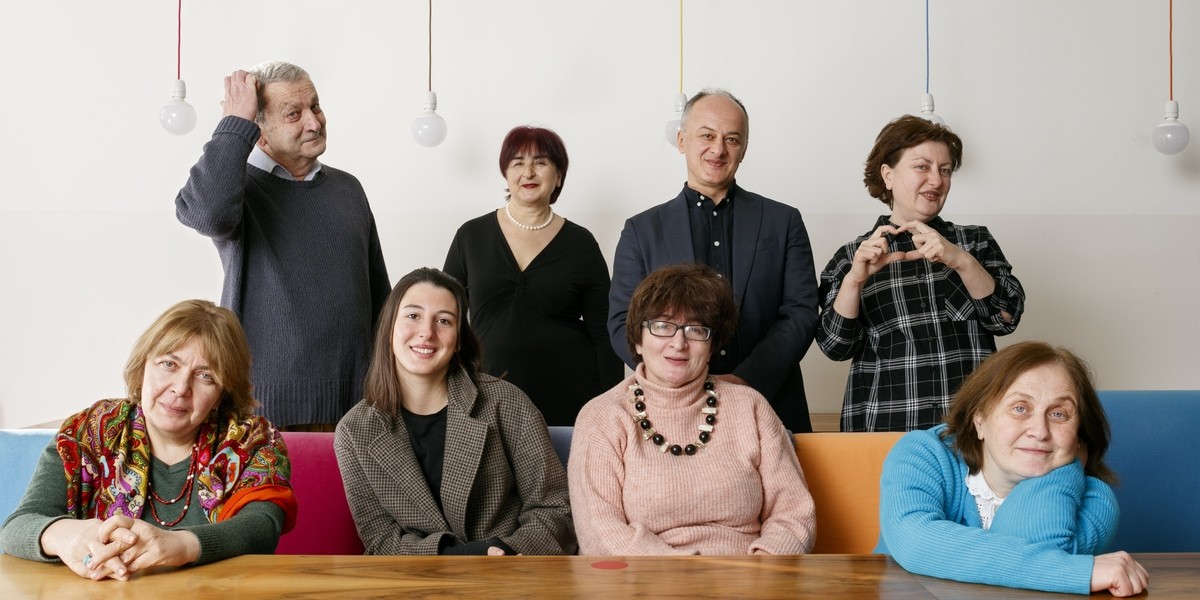Science
(From Left to Right (Back Row); From Left to Right (Front Row))
SCIENCE - 3.5 YEARS
The program in science includes the major branches of scientific inquiry: biology, chemistry, and physics. Students learn to think scientifically; to know how experimentation contributes to the formation and documentation of scientific theories, and how hypotheses are either confirmed or repudiated through application of the scientific method. A significant portion of class time is devoted to performing actual experiments in well-equipped laboratories.
Our biology course taught in the freshman year consists of six large units: cells, evolution, genetics, energy, matter and organization, and ecology, each composed of several, connected sub-themes. Students are taught the basics of human anatomy and physiology, which are embedded in the course of study. Textbooks and technology are integrated into the classes, using video, interactive animations, and internet resources to enrich the course. Hands-on activities provide students with the opportunity to make their own investigations, which helps them to make connections between biological concepts and everyday life.
The course in chemistry, taught in the sophomore year, covers most of the major topics of inorganic chemistry, including (but not limited to) the basic chemical vocabulary, writing chemical formulas and balancing equations, the Periodic Table and atomic structure, reaction types, stoichiometry, calorimetry, and kinetics.
The physics course comes in the junior year and is designed to give students a grounding in the major areas of physics and to give them an opportunity to apply their knowledge to real life situations. The course utilizes extensive discussions, problem-solving, lab work and live presentations. At the end of the course students prepare a written report and presentation on a scientific topic of individual interest, through which they are able to demonstrate their understanding of physics.
SCIENCE TEACHERS:
Malkhaz Makashvili - BIOLOGY TEACHER - Diploma in Biology, Tbilisi State University, 1975; Doctor of Sciences, Georgian Academy of Sciences, 1998. Laureate of the Georgian Republic State Prize in Science (1991). Appointed 2006.
Lela Sisauri - PHYSICS TEACHER - Degree in Russian Language and Literature (First Class / Red Diploma of Distinction) A.S. Pushkin Pedagogical Institute, Tbilisi, 198; MA in Social Anthropology, Goldsmiths College, University of London, UK, 2003; GDL in Law, BPP Law School, London, UK, 2009. Appointed 2021.
Ilia Mestvirishvili - PHYSICS TEACHER - BA in Physics, Tbilisi State University, 1993; MS. Ed. Simmons College, 2003. Appointed 2002.
Tamar Mamulashvili - CHEMISTRY TEACHER - Diploma in Chemical Engineering, Georgian Technical University, 1991; MSc in Civil and Environmental Engineering, Tufts University, 2000; M. Ed., Harvard University, 2002. Appointed 2001.
Irina Tsintsadze - LABORATORY ASSISTANT - Diploma in Chemical Engineering, Tbilisi Technical University, 1986. Appointed 2006.
Ekaterine Tsuladze - PHYSICS TEACHER - Diploma with Honors in Physics. Free University of Tbilisi. 2020, Appointed 2020.
Nia Chachiashvili - BIOLOGY TEACHER - Diploma in Biology, Tbilisi State University, 1985; Candidate of Biological Sciences, Georgian Academy of Sciences, 1998; MS. Ed., Simmons College, 2001. Appointed 2000.
Natia Chachua - CHEMISTRY TEACHER - Diploma with Honors in Chemical Engineering, Georgian Technical University, 1989; Candidate of Chemical Sciences (Organic Chemistry), Academy of Sciences of Georgia, 1995. Appointed 2005.


